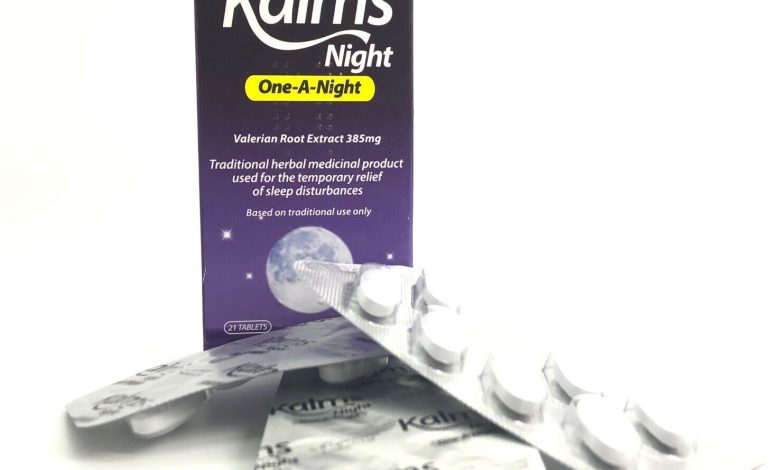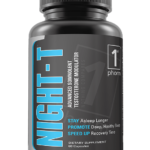What Happens If You Take 2 Kalms One A Night?

Kalms One a Night is a herbal remedy that is marketed as a sleep aid. The product contains the active ingredient valerian root extract, which is derived from the root of the valerian plant. Valerian root has been used for centuries as a natural remedy for anxiety and sleep disorders.
The active ingredient in Kalms One a Night, valerian root extract, works by increasing the levels of a neurotransmitter called GABA in the brain. GABA is known for its calming effects and helps to promote relaxation and reduce anxiety, which can help you fall asleep more easily.
While Kalms One a Night is generally considered safe for most people, there are some precautions you should be aware of. For example, you should not take this product if you are pregnant or breastfeeding.
How you should take Kalms One A Night
The recommended dosage for Kalms One a Night is one tablet, taken with water, about 30 minutes before bedtime. It is important to swallow the tablet whole and not chew it, as this can affect the absorption of the active ingredient.
It is generally recommended to take Kalms One a Night for short periods of time, such as two to four weeks, to help relieve occasional symptoms of mild anxiety and to promote restful sleep.
If you have severe or ongoing sleep problems, or if you experience anxiety or depression that significantly affects your daily life, you should consult your healthcare provider. They can help determine the underlying cause of your symptoms and recommend appropriate treatment options.
It is important to follow the recommended dosage instructions for Kalms One a Night and not exceed the stated dose.
If you miss a dose of Kalms One a Night, do not double the dose to make up for the missed one. Simply take the next dose at the usual time, as directed.
What Happens If You Take 2 Kalms One A Night?
Many things can go wrong when you take 2 Kalms One a Night because taking more than the recommended dose may increase the risk of side effects. If you accidentally take two Kalms One a Night tablets, you may experience an increased risk of side effects such as headache, dizziness, upset stomach, and daytime drowsiness.
These side effects are generally mild and go away on their own, but if you experience severe symptoms or an allergic reaction, such as difficulty breathing or swelling of the face, lips, tongue, or throat, you should seek medical attention immediately.
It is important to follow the recommended dosage instructions for Kalms One a Night and not exceed the stated dose. Taking more than the recommended amount can also increase the risk of drug interactions if you are taking other medications.
If you have any concerns or questions about using Kalms One a Night, you should consult your healthcare provider. They can provide guidance on the appropriate dosage and usage of this product, as well as any potential risks or side effects.
Can you take Kalms day and night together?
Yes, it is possible to take Kalms Day and Night together. However, it is important to follow the recommended dosage guidelines carefully and to speak with a healthcare professional before starting any new supplement regimen.
The active ingredients in Kalms Day and Night are similar, but the formulations are designed for different times of day. Kalms Day is intended to promote relaxation during the day without causing drowsiness, while Kalms Night is designed to promote restful sleep and relieve mild anxiety or nervousness before bedtime.
If you choose to take Kalms Day and Night together, you should take the Kalms Day tablets during the day, with meals, and the Kalms Night tablets 30 minutes before bedtime. It is important not to exceed the recommended daily dosage for either supplement and to be aware of the potential side effects associated with each supplement.
As with any supplement or medication, it is also important to speak with a healthcare professional before starting a new supplement regimen, especially if you have any underlying health conditions or are taking any medications.
What are the possible food and drug interactions that can happen with Kalms Night?
While Kalms Night is generally safe and well-tolerated, there are a few possible interactions with certain foods and drugs to be aware of:
1. Alcohol: Drinking alcohol while taking Kalms Night may increase the sedative effects of the supplement, which could lead to drowsiness or impaired motor skills. Therefore, it’s generally recommended to avoid alcohol while taking Kalms Night.
2. Other sedatives: Kalms Night may interact with other sedatives, including prescription sleeping pills, tranquilizers, and antihistamines, potentially leading to excessive drowsiness and impairment.
3. CNS depressants: Kalms Night may interact with other CNS (central nervous system) depressants, including opioids, benzodiazepines, and barbiturates, potentially leading to respiratory depression or other serious side effects.
4. MAOIs: Kalms Night should not be taken with MAOIs (monoamine oxidase inhibitors), a class of antidepressants, as this can lead to a dangerous increase in blood pressure.
5. Food: There are no known food interactions with Kalms Night, but it’s generally recommended to take the supplement on an empty stomach to maximize absorption and effectiveness.
As with any medication or supplement, it’s important to talk to your doctor or pharmacist before taking Kalms Night, especially if you are taking other medications or have any medical conditions.





